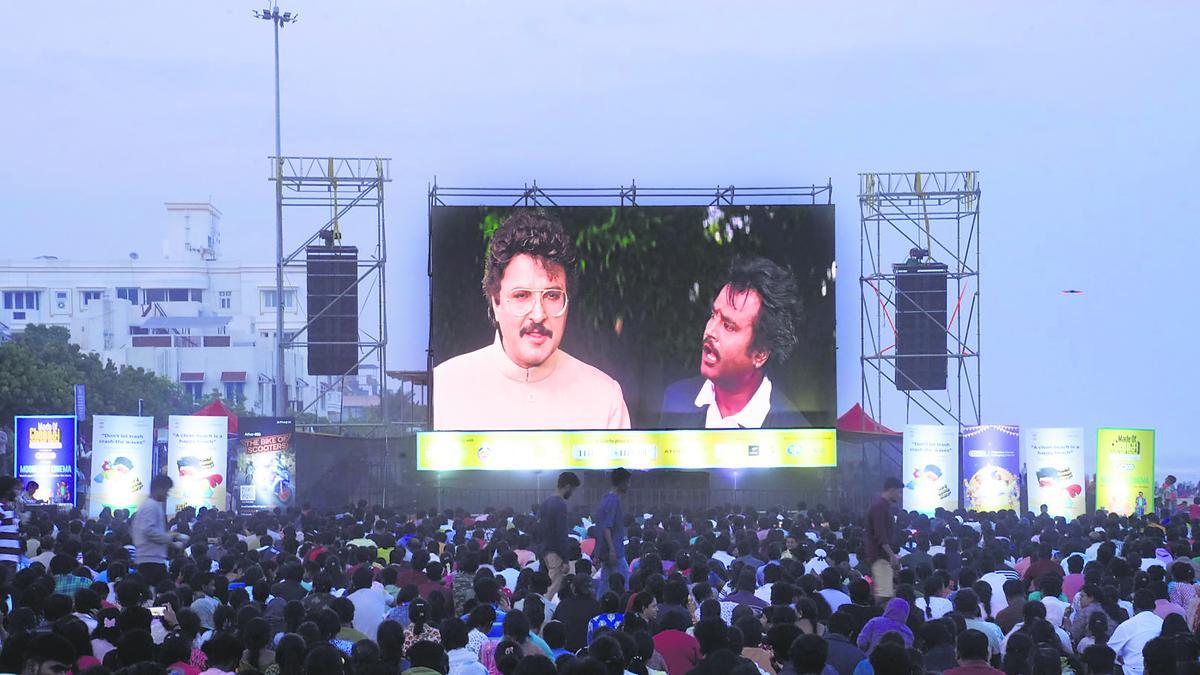
Regardless of the role, from critically acclaimed performances to wildly fantastical characters, Nicolas Cage commands the screen. In his latest film, “Dream Scenario,” directed and written by Kristoffer Borgli, Cage finds himself in a role that is as outlandish as it is deeply touching. The film becomes a quintessential Cage journey—a pairing of the actor’s inherent eccentricity with a story that’s equal parts bizarreness and pathos. Submerging himself into this phantasmagoric experience, Cage performs with the zeal of a maniacal spirit, expertly skewering the very essence of our internet-reliant culture, including its viral phenomena, self-promotion cravings, meme madness, and the severe swings of online notoriety.
The film introduces us to Paul Matthews, interpreted by Cage, an average college lecturer whose attempts to captivate his class with discussions on evolutionary biology and zebra striping largely go unnoticed. His presence at home is similarly understated, with his wife Janet, portrayed by Julianne Nicholson, endearingly putting up with his eccentricities and his daughters Sophie (Lily Bird) and Hannah (Jessica Clement) paying him little mind.
However, the pedestrian existence of Paul is upended following an encounter with his former lover Claire (Marnie McPhail), who reveals a curiosity—she frequently dreams of him. Within the dream world just as in reality, Paul is nothing more than a passive spectator; yet he learns from Claire’s article, tied to his social media profile, that he has become an unwitting staple in other people’s nightly visions, always seen as an indifferent specter who drifts in and out of sight.
Swiftly, the winds of fortune shift, and Paul finds himself the object of newfound admiration: his classes are swollen with attentive students, his daughters grant him their regards, he wins respect in his wife’s social circles, and colleagues who had previously dismissed him now court his company with offers of upscale dining. While the attention is intoxicating, the perils of fame become apparent as a deranged individual threatens his safety at home.
Complications multiply when Paul’s experience with a hotshot viral marketing agency falls short of his expectations. The firm is interested only in leveraging his sudden fame for a soda advertisement, while Paul harbours dreams of publishing a long-anticipated book. An embarrassing incident at the agency triggers a radical transformation in Paul’s dream state— his once passive doppleganger begins acting out violently, leading to a swift and brutal public backlash.
“Dream Scenario” plays out much like the inner workings of a dream itself—irrational, yet effortlessly accepted; the environments are a mix of vivid and faded hues, and the natural laws we abide by are all but ignored. The nightmarish quality of Paul’s predicament, however, hits unsettlingly close to home. He is as powerless to the capricious will of his dream-self as he is a victim to the involuntary invasion of strangers’ dreams.
In one poignant moment, as his wife Janet insists Paul apologize for the actions of his dream-self or risk missing his children’s play, the film captures the excruciating dilemma of modern-day trials by media, where the mob rules and justice is a mere spectator sport. Paul’s refusal to submit to such a tribunal echoes a defiant stand against the uncontrollable forces that propel the story.
Borgli’s latest creation is not just a film; it is a haunting reflection of contemporary society—a stark and eerie commentary on the times we find ourselves in. And for those viewers not seeking an introspective cinematic journey, they can instead sit back and immerse themselves in Nicolas Cage’s explosive and fiery performance, which undeniably serves as the movie’s core spectacle.
“Dream Scenario” is not simply a film to be watched; it is an experience that challenges its audience, a conundrum wrapped in the veneer of digital-age consciousness. Presently showing in theatres, it is a journey through the surreal that questions the very reality we take for granted.










